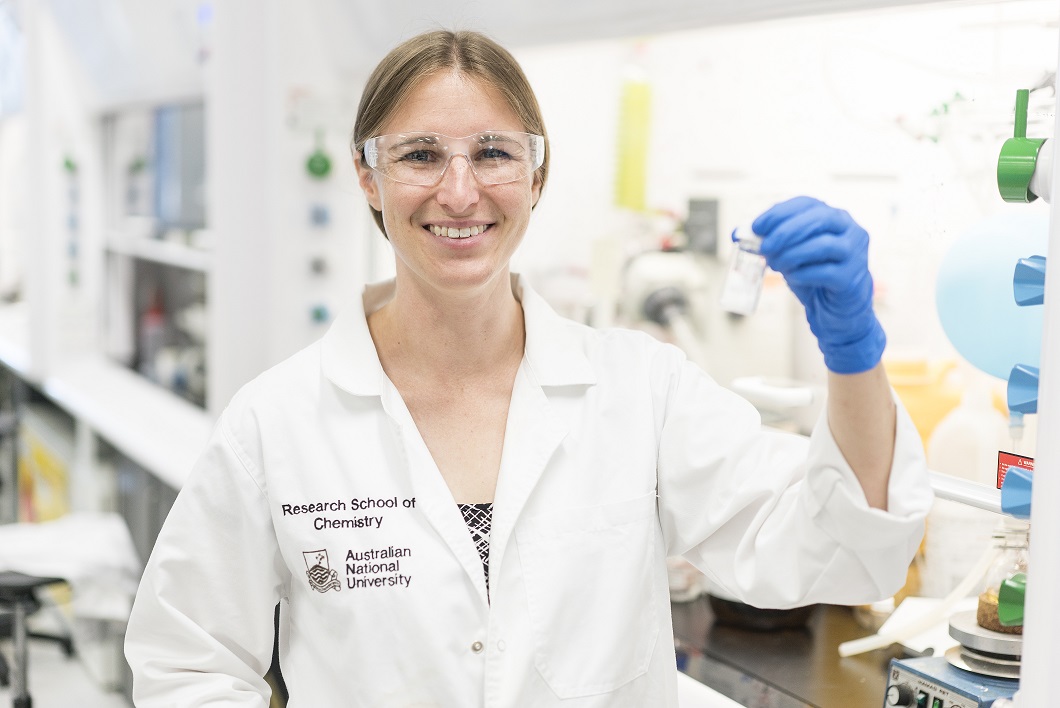Meet the ANU chemist fighting on the frontline of antibiotic resistance

When you have experienced the almost immediate, transforming effect of antibiotics at a time when you’re feeling your absolute worst, it’s not something you forget.
Particularly the next time you’re feeling a whole new level of absolute worst, and your doctor won’t hand you the antibiotics you’re certain you need.
But we are now paying the price for swapping get better soon with get better right now, and the result isn’t just personal frustration at our GP who won’t “cure” our sore throat.
We are now in the grips of a very real crisis of global antibiotic resistance. The Medical Journal of Australia has predicted that by 2050, deaths from currently treatable infections will overtake all cancer deaths, due to the over-prescription of antibiotics.
“When I was a kid, I would go to the doctor and come home with a big bottle of pills,” Dr Lara Malins, a Research Fellow from the ANU Research School of Chemistry, remembers.
Fast forward to 2015, and Dr Malins has another, related, memory: hearing the World Health Organization put out a call to action on antibiotic resistance.
“They essentially said we don’t have many antibiotics left that can treat the most resistant bacteria and in fact we’re finding strains that are resistant to all antibiotics that we have.
“So they wanted to mobilise everyone: doctors need to prescribe antibiotics less, patients need to comply better with their therapies.
“I saw I had the training and skills to be helpful in this fight, because one of the under-explored areas of combatting antibiotic resistance is to develop new drugs that have new modes of action and can potentially outsmart resistant bacteria.”
Dr Malins is a chemical biologist, meaning her research applies the methodology of chemistry towards molecules of biological interest, in her case, proteins and peptides.
“Proteins and peptides are becoming increasingly important therapeutics,” she explains.
“My goal is to use synthetic methods to understand the biological role of peptides and proteins and also to exploit their inherent biological activity to develop new antibiotic therapies.
“I’m looking at a particular type of peptides called ‘lantibiotics’ which are a very complex class of modified peptides that have promising activity. But they haven’t really seen their therapeutic potential realised yet because we have trouble making them in the lab. They’re a bit funky and have a variety of unnatural linkages that exist in nature, but that we don’t yet know how to replicate.
“If we can find new strategies to make them in the lab to explore their antibacterial and antibiotic activity, it would be a huge step forward in this fight against antibiotic resistance.”
Right now Dr Malins says her research is “about learning absolutely everything we can.”
“In your mind you have a vision that one day this is going to be a really great therapy but there’s a lot of time between the discovery, and that realisation.”
In the meantime, we’ll just have to toughen up and endure our sore throats. Or risk discovering a whole new level of absolute worst, on a global scale.
If you’re interested in funky peptides, explore ANU research opportunities in chemistry.
